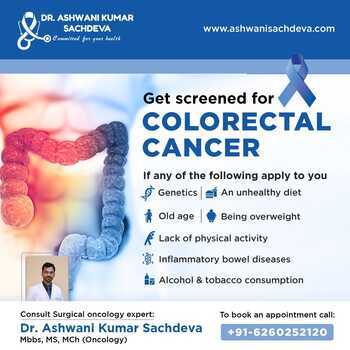Chemotherapy, while an essential treatment for cancer, can cause various side effects due to its mechanism of action of targeting rapidly dividing cells, which affects not only cancer cells but also healthy cells in the body. The severity and specific side effects experienced can vary widely depending on the type of chemotherapy drugs used, the dosage, duration of treatment, individual patient factors, and the type and stage of cancer being treated. Here’s an in-depth look at some of the common side effects of chemotherapy:
1. Nausea and Vomiting:
- Cause: Chemotherapy drugs can irritate the lining of the stomach and trigger the vomiting center in the brain.
- Timing: Onset can occur shortly after treatment and may persist for several days.
- Management: Antiemetic medications, including serotonin receptor antagonists (e.g., ondansetron), corticosteroids, and neurokinin-1 receptor antagonists, are commonly used to prevent and control nausea and vomiting.
2. Fatigue:
- Cause: Chemotherapy can cause anemia (low red blood cell count), which leads to reduced oxygen delivery to tissues and fatigue. Additionally, the body’s energy stores may be depleted due to the demands of fighting cancer and recovering from treatment.
- Timing: Fatigue can occur during treatment and may persist for weeks to months afterward.
- Management: Adequate rest, balanced nutrition, gentle exercise, and psychosocial support can help manage fatigue. Treatment of underlying causes such as anemia may also be necessary.
3. Hair Loss (Alopecia):
- Cause: Chemotherapy drugs target rapidly dividing cells in hair follicles, leading to hair loss. Not all chemotherapy drugs cause hair loss, and the extent can vary from thinning to complete baldness.
- Timing: Hair loss typically occurs within a few weeks of starting treatment.
- Management: Scalp cooling devices may help reduce hair loss by constricting blood vessels in the scalp, reducing the amount of chemotherapy that reaches the hair follicles. Wigs, scarves, and hats can provide cosmetic support.
4. Bone Marrow Suppression:
- Cause: Chemotherapy drugs can suppress the bone marrow’s ability to produce blood cells, leading to low blood cell counts:
- Anemia: Low red blood cell count, resulting in fatigue and pallor.
- Thrombocytopenia: Low platelet count, increasing the risk of bleeding and bruising.
- Neutropenia: Low white blood cell count, increasing the risk of infections.
- Timing: Blood cell counts typically reach their lowest levels (nadir) 7-14 days after chemotherapy administration.
- Management: Growth factors such as erythropoietin (for anemia) and granulocyte colony-stimulating factors (e.g., filgrastim, pegfilgrastim) can stimulate blood cell production. Blood transfusions and antimicrobial prophylaxis may be necessary to manage complications.
5. Mucositis:
- Cause: Chemotherapy-induced damage to the mucous membranes lining the mouth, throat, esophagus, and gastrointestinal tract.
- Symptoms: Pain, inflammation, and ulceration of the mucous membranes, leading to difficulty swallowing, oral sores, and increased susceptibility to infections.
- Timing: Mucositis typically develops within a week of starting chemotherapy.
- Management: Mouthwashes, oral rinses, and topical analgesics can help alleviate symptoms. Maintaining good oral hygiene and avoiding irritating foods can also be beneficial.
6. Peripheral Neuropathy:
- Cause: Damage to peripheral nerves, leading to numbness, tingling, burning sensations, or pain, usually in the hands and feet.
- Timing: Peripheral neuropathy may develop or worsen with cumulative chemotherapy doses.
- Management: Symptomatic relief with medications such as gabapentin, pregabalin, or duloxetine. Dose adjustments or discontinuation of chemotherapy may be necessary if neuropathy becomes severe.
7. Gastrointestinal Symptoms:
- Cause: Chemotherapy-induced damage to the gastrointestinal tract, leading to nausea, vomiting, diarrhea, constipation, abdominal pain, and changes in appetite.
- Timing: Gastrointestinal symptoms can occur during or shortly after chemotherapy treatment.
- Management: Antiemetic medications, dietary modifications, hydration, and medications to manage diarrhea or constipation can help alleviate gastrointestinal symptoms.
8. Cognitive Changes (Chemo Brain):
- Cause: Chemotherapy may cause cognitive impairment, including difficulties with memory, concentration, and multitasking.
- Timing: Cognitive changes can occur during or after chemotherapy treatment and may persist long-term in some patients.
- Management: Cognitive rehabilitation, cognitive behavioral therapy, and lifestyle modifications (e.g., stress reduction, adequate sleep, mental stimulation) may help manage chemo brain symptoms.
9. Cardiotoxicity:
- Cause: Some chemotherapy drugs, particularly anthracyclines (e.g., doxorubicin), can cause damage to the heart muscle, leading to heart failure or cardiomyopathy.
- Timing: Cardiotoxicity may occur during treatment or manifest years after chemotherapy completion.
- Management: Cardiac monitoring with echocardiography or other imaging modalities may be recommended during and after chemotherapy treatment. Medications such as beta-blockers or angiotensin-converting enzyme (ACE) inhibitors may be used to manage cardiac dysfunction.
10. Psychological and Emotional Effects:
- Cause: Coping with a cancer diagnosis and undergoing chemotherapy can lead to psychological distress, including anxiety, depression, fear, and uncertainty.
- Timing: Psychological and emotional effects can occur at any stage of the cancer journey.
- Management: Psychosocial support, counseling, support groups, and complementary therapies such as mindfulness-based stress reduction or relaxation techniques can help address emotional distress and improve quality of life.
Conclusion:
While chemotherapy is an effective treatment for many types of cancer, it can cause a range of side effects that may impact patients’ quality of life. It’s essential for healthcare providers to monitor patients closely, provide supportive care, and tailor treatment regimens to minimize side effects while maximizing therapeutic benefit. Open communication between patients and their healthcare team is crucial for effectively managing chemotherapy-related side effects and optimizing treatment outcomes.
Hospitalanddoctors.com serves as a vital platform for patients undergoing chemotherapy by offering information, support, and access to healthcare professionals specialized in cancer care. Through this platform, patients can learn about chemotherapy side effects and their management strategies, connect with experts like Dr. Ashwani Kumar Sachdeva, an oncologist, for personalized guidance, monitor symptoms, manage medications, receive nutritional advice, access psychosocial support, and facilitate care coordination among various healthcare providers. By providing comprehensive resources and facilitating communication, Hospitalanddoctors.com empowers patients to navigate chemotherapy treatment effectively and improve their overall quality of life.











 and then
and then